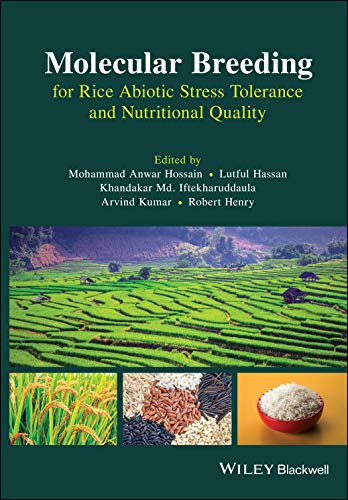

Most ebook files are in PDF format, so you can easily read them using various software such as Foxit Reader or directly on the Google Chrome browser.
Some ebook files are released by publishers in other formats such as .awz, .mobi, .epub, .fb2, etc. You may need to install specific software to read these formats on mobile/PC, such as Calibre.
Please read the tutorial at this link: https://ebookbell.com/faq
We offer FREE conversion to the popular formats you request; however, this may take some time. Therefore, right after payment, please email us, and we will try to provide the service as quickly as possible.
For some exceptional file formats or broken links (if any), please refrain from opening any disputes. Instead, email us first, and we will try to assist within a maximum of 6 hours.
EbookBell Team

4.4
22 reviewsPresents the latest knowledge of improving the stress tolerance, yield, and quality of rice crops
One of the most important cereal crops, rice provides food to more than half of the world population. Various abiotic stresses—currently impacting an estimated 60% of crop yields—are projected to increase in severity and frequency due to climate change. In light of the threat of global food grain insecurity, interest in molecular rice breeding has intensified in recent years. Progress has been made, but there remains an urgent need to develop stress-tolerant, bio-fortified rice varieties that provide consistent and high-quality yields under both stress and non-stress conditions.
Molecular Breeding for Rice Abiotic Stress Tolerance and Nutritional Qualityis the first book to provide comprehensive and up-to-date coverage of this critical topic, containing the physiological, biochemical, and molecular information required to develop effective engineering strategies for enhancing rice yield. Authoritative and in-depth chapters examine the molecular and genetic bases of abiotic stress tolerance, discuss yield and quality improvement of rice, and explore new approaches to better utilize natural resources through modern breeding. Topics Include rice adaptation to climate change, enriching rice yields under low phosphorus and light intensity, increasing iron, zinc, vitamin and antioxidant content, and improving tolerance to salinity, drought, heat, cold, submergence, heavy metals and Ultraviolet-B radiation. This important resource:
Molecular Breeding for Rice Abiotic Stress Tolerance and Nutritional Qualityis required reading for rice researchers, agriculturists, and agribusiness professionals, and the ideal text for instructors and students in molecular plant breeding, abiotic stress tolerance, environmental science, and plant physiology, biochemistry, molecular biology, and biotechnology.